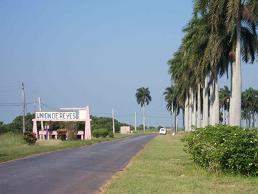Community-based tourism is relevant to social and economic transformation in Varadero.
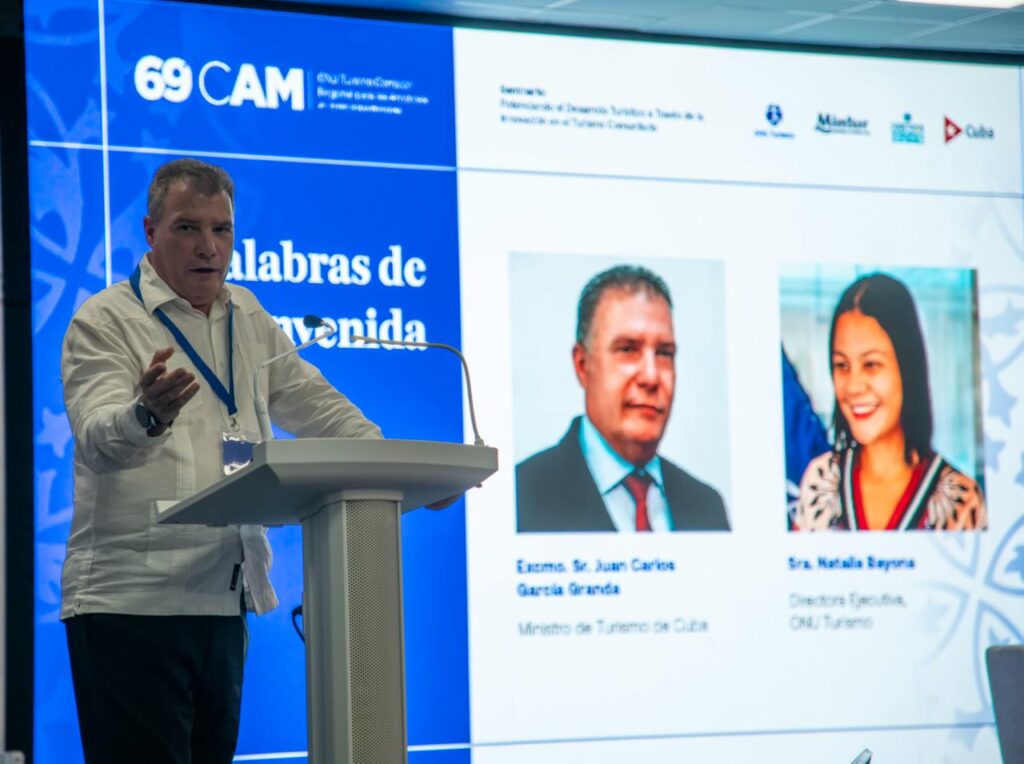
The capacity of the leisure industry to drive social transformation, generate jobs and offer life opportunities where people have their roots, transcended in all the presentations of the seminar «Empowering Tourism Development through Innovation in Communities».

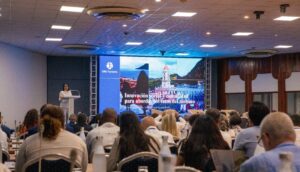
The seminar promoted the importance of innovation and community-based tourism. Photo: Taken from X of UN Tourism.
The capacity of the leisure industry to drive social transformation, generate jobs and offer life opportunities where people have their roots, transcended in all the presentations of the seminar Empowering Tourism Development through Innovation in Communities.
A prelude to the 69th meeting of the UN Tourism Regional Commission for the Americas (CAM), to be held today in Cuba’s main beach resort. At the Plaza America Convention Center, experts from this region gave excellent panels on the present and future of this type of activity at the local level.
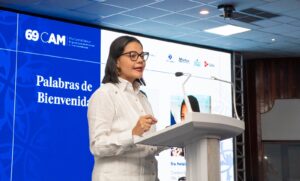
Natalia Bayona, Executive Director of UN Tourism. Photo: Taken from X of UN Tourism.
Natalia Bayona, Executive Director of UN Tourism spoke about the possibilities of social innovation, the key to boost the recovery of this sector and to attract investments to Latin America and the Caribbean through Community Tourism.
Bayona highlighted the role of state policies to ensure safety, investment and education and to boost the travel industry in communities in Latin America, where 50 percent of young people working in tourism have only a high school education, said Bayona.
We need this region to have a technical and professional workforce to ensure valuable employment, he said.
At UN Tourism (formerly UNWTO), he said, we believe in the diversification of foreign investment to support the progress of community-based tourism, which has grown 14 percent in the world, an expression, he insisted, of its strength to achieve progress, social cohesion and a new way of doing tourism.
In his presentation, the head of Cuba’s Ministry of Tourism, Juan Carlos García Granda, expressed the strategic priority that territorial governments should be at the center of management and sustainability, by promoting an innovative environment.
García Granda reasoned on the value of local potentialities and the urgent need to promote the maximum use of resources at all levels, especially in the communities, to promote their development and that of the citizens who live there.
«Achieving this aspiration is not easy in view of the complex economic and financial situation our country is going through, generated by the intensification of the economic, commercial and financial blockade imposed by the government of the United States, elements that we strongly condemn from this space,» he said.
Challenges, strategies and best practices for sustainable tourism development through empowerment and investment in community-based tourism was one of the panels that aroused most interest.
The intervention of Juana Alicia Ruiz, who presented a success story: Asociación de Mujeres Tejiendo-Sueños y Sabores de Mampuján, Colombia, and how this project built peace in a locality marked by pain, rape and death in times of armed conflict, was very impressive. «We put aside hatred and grudges to talk about love,» she said. Although we do not forget so that that time does not return.
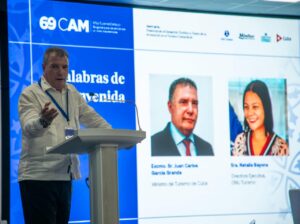
Cuba works with the vision of turning tourism into a positive force for the transformation, progress and wellbeing of its communities, García Granda assured. Photo: X de Gracia Granda’s account.
On Tuesday, at the Meliá Internacional Hotel, Gustavo Santos, regional director for the Americas of UN Tourism, will present his report Panorama of trends and perspectives of international tourism in the region at the 69th CAM, one of the most important events of the tourism sector held in Cuba.
Written by Eva Luna Acosta Armiñán.



